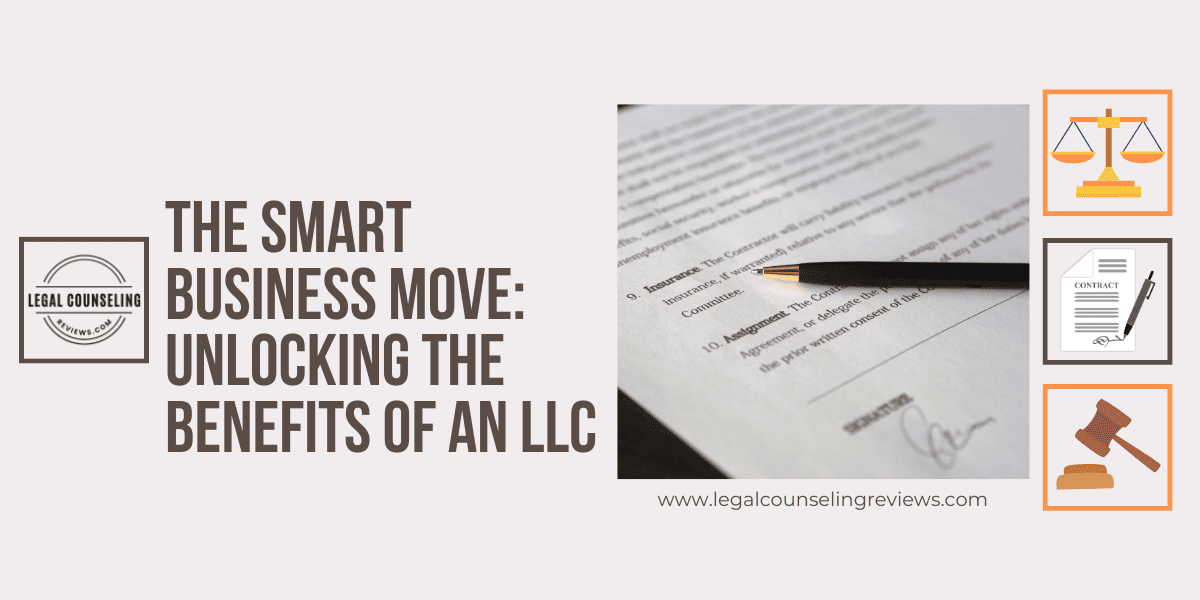If you have thought about kick-starting your own business, you have most likely come across the term “LLC,” or limited liability company. But what does this term mean? Is it a good choice for your business?
To get to the answers, keep reading as we explain everything you need to know about an LLC.
Let’s Dive in Top Everything LLC
If you’re looking to start a business and want both legal protection and financial flexibility, an LLC is a good choice. Why?
One of the top LLC advantages is the “pass-through” taxation. Simply put, the LLC doesn’t pay income tax; any profits or losses are assigned to the owner’s personal tax returns, hence avoiding double taxation. This is a big plus, especially for all those in the small business industry.
Moreover, LLCs are not limited to a specific number of shareholders, i.e., anyone can potentially invest in a limited liability company. They are also not subject to the same heavy regulations as corporations, making it easier to start and run a business of this type.
What Is an LLC?
An LLC is a US business arrangement that combines some features of a partnership and a corporation. Namely, this legal entity is not as complex to start as a corporation but similar to it in its limited liability, whereas its flow-through taxation feature is akin to that of partnerships.
Many (especially new businesses) opt for this legal entity because of these traits. Like a corporation, an LLC can protect your personal assets if the business fails. It also offers the simplicity of partnerships, making it easier to manage.
As mentioned, anyone can be part of an LLC, including another LLC, a corporation, individuals, etc., even foreigners. In some cases, owners can decide not to hire any employees and open a single-member LLC.
What Is an LLC Used For?
When opening a company, you must consider many things, like taxes, management, employment, etc. Since an LLC offers much more flexibility and simplicity, many choose this form.
To make it simpler to understand, here is what an LLC is mainly used for:
- It allows you to limit your personal liability in case the business flops and some debts need to be paid.
- Since anyone can be part of an LLC, anyone can become an investor. Hence, you can collect more (venture) capital.
- The “pass-through” taxation structure blocks owners from being double-taxed. In other words, all income will fall under personal income taxes.
Usually, small businesses like local coffee shops or flower shops open their companies under the LLC mark. But a limited liability company is not only used for new and small stores—some of the biggest names in the world today work as an LLC. For example, Google and Apple are LLCs.
In fact, the limited liability company mark can be used by all businesses in all industries—from real estate to marketing, food production, and more.
What Are the Benefits of an LLC?
Considering that an LLC has features from different types of businesses, such as corporations, general partnerships, and sole proprietorships, it’s only logical that it would take their advantages, too. Below, we will go through the benefits of an LLC.

Limits Your Personal Liability
One of the benefits of an LLC is the limited liability protection. As the name suggests, an LLC limits your liability. What does that mean? Look at the following example:
If your business is a sole proprietorship or even a partnership, there is no distinction between you and the company, i.e., both are seen as the same entity. This means that your business loan is also your personal one.
But with an LLC, you limit this personal liability. Namely, an LLC, like a corporation, is not tied to its owners, meaning that your personal asset is protected from business debts and lawsuits. So, if you have taken out a business loan to invest in the company, rest assured that your personal tangible and non-tangible property is safe.
Flexible Management Structure for LLCs
Regarding management structure, corporations tend to have a fixed structure. They typically have a board of directors overseeing company policies and officers handling daily operations. Plus, shareholders must meet every year to elect new directors and deal with other company business matters.
LLCs, on the other hand, are much more flexible. A member can manage the business individually or hire employees. This flexibility means that you can customize the management so it would work for your business’s unique needs.
Tax Benefits for LLCs
LLCs don’t have a federal tax classification. Instead, they adopt the tax status of a partnership or corporation according to the members.
Namely, if the LLC has at least two members, it’s classified as a partnership, whereas if it’s one, then it’s a so-called disregarded entity. There is, however, a third option—being classified as a corporation, but only if the LLCs files Form 8832.
Of course, each entity has some pros and cons regarding taxation. But when it comes to LLCs, one term stands out—the previously-mentioned “pass-through” taxation.
As mentioned, this means that the LLC owners don’t pay an LLC or corporate tax. Instead, all income transfers to the owners’ personal tax returns, meaning they pay personal income tax. This facilitating trait eases the tax filing process and saves money on taxes by avoiding double taxation.

Less Paperwork
Unlike corporations, there is no need for LLCs to hold annual meetings or have detailed records. Plus, there are several states in which LLCs don’t even file annual reports. This can make running your business much simpler and less demanding regarding paperwork and record-keeping. Ultimately, it will allow you to focus more on the company itself, building its credibility and professionalism.
Profit-Sharing Flexibility
LLCs have more flexibility regarding the distribution of profits to owners, thanks to the LLC operating agreement. For example, they can choose to distribute them based on contributions made during the startup phase of the business.
Unlike LLCs, corporations must distribute profits based on the number and types of shares held by shareholders.
Why LLC Is the Best Option
Forming a limited liability company can easily be the best business option for many companies for several reasons besides asset protection. Here is why an LLC is an attractive choice:
- Flexibility and simplicity
- Limited liability protection
- Great tax advantages and pass-through taxation
- Flexibility in ownership and management
Besides these key points, there are two other reasons an LLC may be the right choice for you:
- Credibility and professionalism – Forming a limited liability company can give a business somewhat of a professional upper hand. Having “LLC” in the company name suggests that the business is a legally recognized entity, which can help build trust with customers and suppliers.
- Easy transfer of ownership – An LLC offers options for succession planning and continuity of the business. A member can transfer ownership interests or designate successors. This means the business can continue operating even if members retire or pass away.

Do I Need a Lawyer to Form an LLC?
Generally, no, you don’t need legal services to form a limited liability company. While consulting an attorney can be helpful, there is no requirement nor need to hire one to help with LLC formation. Many business owners choose to form their LLC on their own or with the help of a registered agent.
The Final Say
Down the line, it’s safe to say that LLCs are a particular type of business structure that combines some of the best features of corporations and partnerships. A massive advantage of an LLC is that it offers members liability protection.
In addition, LLCs have greater management flexibility. There is no structure for them to follow, and owners are free to choose how the limited liability company operates. This business option can be a great leg-up for a small business that wants to operate in a more informal way and doesn’t want to be bogged down by formalities and bureaucracy.
All aspects considered, starting an LLC might just be the best business decision for you, considering its flexible managerial options, the lesser volumes of paperwork, and the ease of formation.
Author

Raymond Hickman is a distinguished lawyer, writer, and legal commentator with extensive experience in various areas of law. He is widely recognized for his exceptional legal knowledge, insightful analysis, and engaging writing style, which have earned him a reputation as a leading voice in the legal profession.With his exceptional legal expertise, insightful analysis, and engaging writing style, Mr. Hickman has earned a reputation as a leading authority in the legal profession. His contributions to the field of law have been recognized by his peers, clients, and the wider legal community, making him a valuable resource for anyone seeking legal advice or insight.








